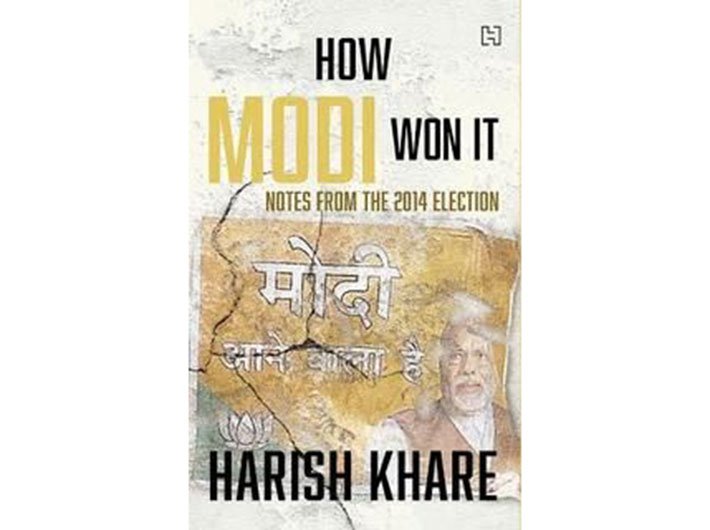Khare’s account of 2014 elections makes for an interesting reading despite his subjective rendering – or, perhaps, because of it
Book: How Modi Won It: Notes from the 2014 elections
By: Harish Khare
Price: Rs 599
Pages: 256
Veteran journalist Harish Khare is endowed with a wonderful gift of combining sharp sarcasm with profound erudition in his writing. He is equally at ease with scholarly prose on contemporary political events and the writing of a reporter. That is why his book ‘How Modi Won It: Notes from the 2014 election’ is a treat. It gives the impression of a casual conversation, packaged in lucid and fast prose, interspersed with insightful observation.
Yet, Khare does not claim to be presenting an objective account of the events that preceded the victory of Narendra Modi. His account is subjective right from the word go. On the back cover of the book, he quotes a poem by noted Hindi laureate Ashok Vajpeyi titled “Aatatayi ki Pratiksha” (waiting for the tormentor). And unambiguously the tormentor in Khare’s narrative is none other than the man who is the prime minister of the country today.
There is little doubt that in this 242-page book, Modi comes across as the biggest tormentor of Khare. His sinister shadow lurks on most pages of the book. Given Khare’s vast experience as a journalist and his stint as resident editor of the Times of India, Ahmedabad edition, much of what he says has a context. In the beginning of his book, he quotes Gopalkrishna Gandhi to point out “three haqiqaten (three layers of realities)” of India: the people (Awaam e-Hind), the politics (Siyaasat-e-Hind) and the Indian state (Hukumat-e-Hind), which are like “the three lions” (sic) of our national emblem.
There exists a creative tension in the coexistence of these three realities. Khare recounts India’s political history to point out that the people’s mandate has often been a message of course correction for politics and the Indian state. For instance, he explains that the NDA regime led by Atal Bihari Vajpayee lost because of the then PM’s inability to restore pluralist and democratic vibrancy to the state after the 2002 riots in Gujarat. Obviously, in Khare’s view, Vajpayee would have had a fair chance of winning the 2004 election had he sacked Modi.
On the other hand, Khare’s book points out that the sober and erudite Manmohan Singh was not much different from the moderate and amiable Vajpayee who steered the course of the Indian state for six years. Manmohan Singh’s decade-long rule had come to symbolise a status quo with which the younger generation became increasingly impatient. Though the book deals with a spate of corruption scandals that cropped up during Singh’s regime, Khare lets Manmohan Singh go with a light rap on the knuckle. Perhaps, his own role as adviser to the prime minister that coincided with the turbulent phase has also contributed to his subjective account of Indian politics. In his narrative, Khare appears unreasonably indulgent towards his former boss, though he makes critical comments on the performance of Rahul Gandhi as a “kind of opponent” to Modi.
Interestingly, he also sees a cosmic conspiracy behind Modi’s victory. At times his narrative betrays a sense of frustration, for example, when he points out that the society was misled to believe in Modi by a compact of corporate houses, social media, TV channels and a younger generation of society which has developed a flash mob tendency. A similar logic was invented by a section of Gujarati intelligentsia to explain the continuous victories of Modi in Gujarat after the 2002 riots. At the end of the book, Khare sums up Modi’s victory as the result of a “Hindu uprising”. By all accounts, the book could have a better title, “Atatayi ka Aana” (the arrival of the tormentor). Khare is not known for mincing his words when he acts partisan and deals with his adversarial subjects. Though he seems immensely tormented by Modi’s victory, he must have opted for an innocent title for his book to avoid running down the institution of the prime minister. And that is the beauty of the subjective history he has written in haste.
ajay@governancenow.com

